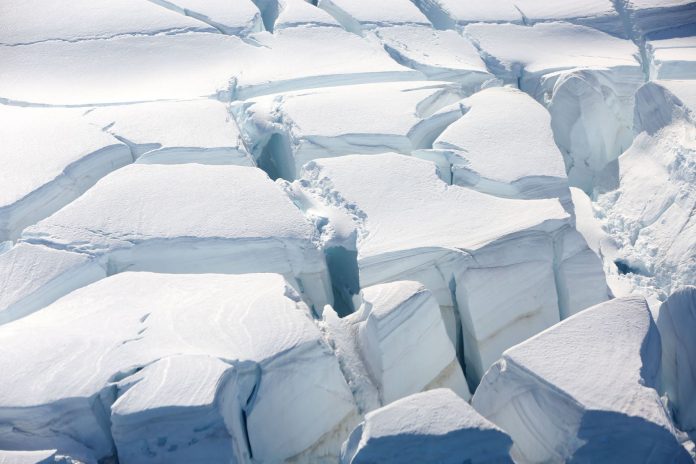Scientists have discovered “strange creatures” under a 900-metre thick ice shelf of the Antarctic, according to an article published in the journal Frontiers in Marine Science.
By drilling through ice of the Filchner-Ronne shelf, the scientists accidentally discovered animals looking like sponges and possibly other unknown species attached to a boulder on the sea floor.
“We were expecting to retrieve a sediment core from under the ice shelf, so it came as a bit of a surprise when we hit the boulder and saw from the video footage that there were animals living on it,” said James Smith, a geologist at the British Antarctic Survey (BAS).
According to a statement by the BAS, this was the first study to find stationary animals in such conditions, as very few other species had been observed at a distance of 260km from the open ocean, in complete darkness and temperatures of minus 2.2C.
“This discovery is one of those fortunate accidents that pushes ideas in a different direction and shows us that Antarctic marine life is incredibly special and amazingly adapted to a frozen world,” study co-author and BAS biogeographer Huw Griffiths said.
The scientists said the animals were 1500km away from a source of photosynthesis.
“Our discovery raises so many more questions than it answers, such as how did they get there? What are they eating?,” Griffiths said.
“And what would happen to these communities if the ice shelf collapsed?,” Griffiths added, with regard to the consequences of climate change.





